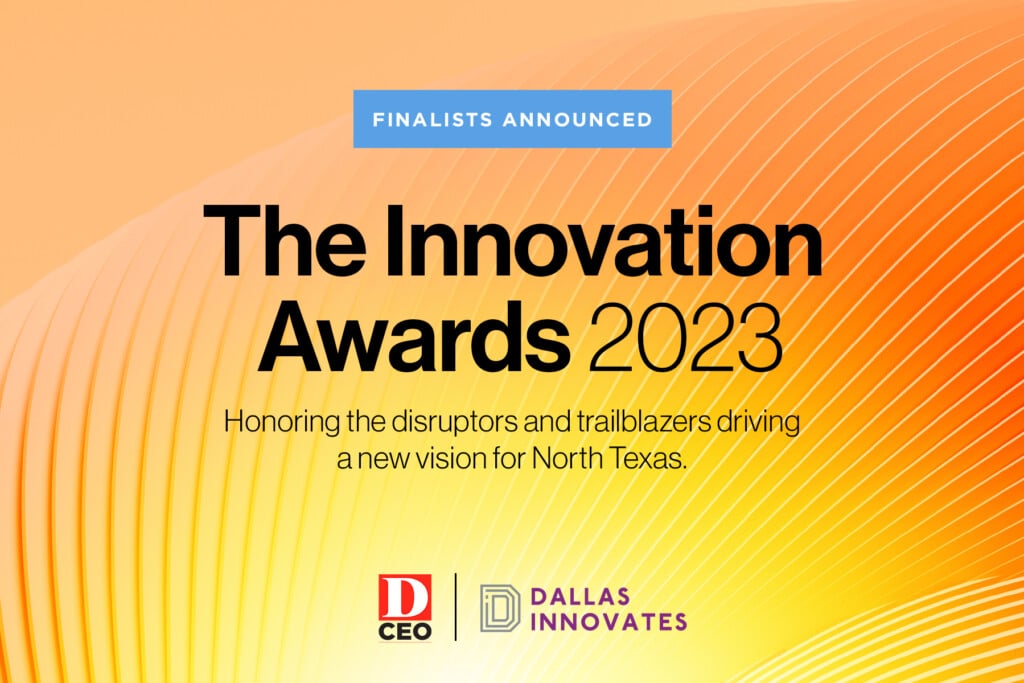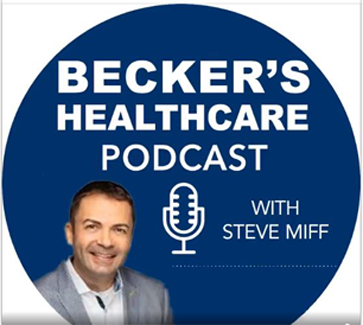By Jacqueline Naeem, MD, Senior Medical Director/Program Director AHC
In a recent article posted in the globally recognized leader in healthcare publishing, the New England Journal of Medicine Catalyst (NEJM Catalyst), we detailed how PCCI led the U.S. Centers for Medicare & Medicaid Services (CMS) Accountable Health Communities (AHC) Model in Dallas County.1
 To view the NEJM Catalyst article, click here: https://catalyst.nejm.org/doi/full/10.1056/CAT.22.0149
To view the NEJM Catalyst article, click here: https://catalyst.nejm.org/doi/full/10.1056/CAT.22.0149
As the article details, this five-year initiative, which included partnerships with the region’s top healthcare providers (e.g., Parkland Health) and community-based organizations (CBOs), demonstrated its positive impact on health care outcomes for some of the most vulnerable Dallas County residents.
The aim of the initiative was to answer the question as to whether cost and utilization outcomes can be improved through addressing health related social needs (HRSNs) of Medicare and Medicaid beneficiaries. CMS identified the core HRSNs (i.e., food, housing, utilities, transportation, and interpersonal safety) but beneficiaries also disclosed needs for additional items, such as medical equipment, diapers, and baby formula. We hoped that by identifying these needs and connecting beneficiaries to resources to assist with meeting the needs, we would see a reduction both in health costs and emergency department utilization.
We found the answer was Yes. But while our results seem straightforward, as we discuss below, for the DAHC (as with other connected community of care models) there were multiple, interconnected elements at play and the route to get there was at times heavily circuitous (but always rewarding). We will begin by sharing our output and results.
We (PCCI and partner community health workers) were able to provide over 9,000 beneficiaries with active case management (we refer to this as navigation) where they were screened for their HRSNs, and then referred to CBOs for assistance in resolving the identified needs. The community health workers (CHWs) also provided monthly follow-up calls with each beneficiary until their needs were met, or for up to 12 months. Over the initiative’s course, PCCI identified more than 19,000 distinct needs, with 61% of individuals having two or more concurrent needs. Through the referral process, CBOs provided a multitude of support services, including more than 200,000 pounds of food and $540,000 in utility rent assistance.
With that output, as outlined in greater detail in the NEJM Catalyst article, we were able to make some conclusions. Results showed that actively navigated individuals experienced a greater decrease in per-person ED visits than those in a comparable control cohort, with the navigation cohort having a statistically significant reduction in average ED utilization, both while actively navigated and in the 12 months after navigation. We also found that there is an ROI of $1.34 per dollar spent, which demonstrates the positive impacts on cost as well.
To better understand how we achieved these results, it is important to examine how we built the DAHC.
PCCI’s Role
As we discuss in the NEJM Catalyst article, PCCI served as a bridge organization to lead implementation of the AHC Model in Dallas, in collaboration with clinical delivery sites, CBOs, state Medicaid agencies, and other community stakeholders. Bridge organizations across the country were predominantly health systems and hospitals, but also included nonprofits like PCCI, health IT providers, academic institutions, health plans, and a public health agency. PCCI partnered with 17 clinical sites, representing five Dallas health care systems and more than 100 local CBOs, to establish the DAHC. The Model began in May 2017 and ended in April 2022. Beneficiary screenings began in the summer of 2018 following a 12-month pre-implementation period. Using a CMS-developed HRSN screening tool, PCCI and its partners screened 12,548 unique Dallas County beneficiaries meeting the criteria for Model eligibility.
As you can imagine, making a program as large as this (and involving mass screenings in a healthcare setting) operational, with multiple players involved, was no small task. We had to complete a significant amount of work before we even began speaking to patients. We first had to establish the collaborative partnerships needed, including an Advisory Board, which fortunately for DAHC was made up of key community stakeholders and Texas Medicaid, to help provide key insights and drive our work. We also had to establish the infrastructure, standard operating procedures, and workflows in the early stages of the program. CMS set quarterly targets for screening and navigation so we had a clear goal of how many individuals we would need to navigate each month to satisfy the targets.
DAHC: Implementation
When we first started screening individuals, we were based in clinical sites, as we thought that we could conduct screening for HRSNs as part of that encounter. However, it quickly became apparent that we would struggle to meet our CMS targets using this approach. It was difficult to get participation from individuals who were understandably focused on their immediate health needs driving the clinical visit and unable to dedicate time or attention to completing the screening questionnaire. Clinical site staff also had more pressing priorities and completing the screening was not at the top of the list. Using these lessons learned, we were able to shift our approach to a successful, telephonic post-visit screening. Using our data science expertise, our team was able to create automated daily lists of potentially eligible individuals that our CHWs could call each day. This allowed us to avoid calling the same individual repeatedly, and also gave us a large pool of people to contact each day. The beneficiary feedback was overwhelmingly positive. Having someone reach out to them after an ED visit or inpatient discharge made them feel cared for, and it was easy for a trusting rapport to be established. We also found that it was much more favorable for the individuals we were screening to answer questions over the phone in their own environment, versus a stressful clinical environment.
Community Health Worker Outreach
CHWs employed a survey using the 10-question, CMS AHC HRSN screening tool that, in addition to asking questions about HRSNs, confirmed navigation eligibility. The screening process established:
- The beneficiary’s self-reported number of ED visits over the past year.
- If this number was two or more and the beneficiary was insecure in at least one of the five core HRSN areas, the beneficiary was eligible for navigation.
- If this number was one or fewer, the CHW completed the survey but then informed the beneficiary that they were ineligible. The CHW provided referrals (for any identified need) if the beneficiary was interested.
Active Navigation
The final stage of the DAHC workflow consisted of navigating the beneficiary. Once an eligible beneficiary completed the AHC HRSN screening and personal interview, the CHW provided a list of CBO referrals best suited to meet the beneficiary’s needs (e.g., for food insecurity, referral to a food bank; for transportation issues, referral to free/low cost transportation resources).
Data Modeling and Analysis
As detailed in the NEJM Catalyst article, to assess the impact of navigation on beneficiary health care utilization and expenditures, PCCI constructed a control cohort of beneficiaries who matched as closely as possible the demographic and clinical characteristics of the beneficiaries in the intervention cohort.
For the purposes of our analysis, we opted to use only actual Parkland Health (Parkland) cost data for eligible beneficiaries as captured by Parkland’s EMR and financial accounting systems, as historical experience suggested the vast majority of Parkland beneficiaries repetitively use Parkland as their primary source of care. We wanted to be able to identify whether the positive results we had seen were truly due to the program, versus changes in healthcare utilization as a result of the pandemic.
Figure 1 illustrates the key steps involved in the DAHC program and the corresponding number of beneficiaries engaged at each step of the process, and in the creation of our matched control group.

Although a highly complex undertaking, the DAHC results highlighted the benefits of addressing HRSN within the framework of a connected community of care model. We hope that our experience and the results we found will inspire other organizations who may be thinking about setting up a program such as this. We are happy to share our lessons learned along the way!
 About the Author
About the Author
Dr. Jacqueline Naeem, MD, is a Senior Medical Director/Program Director AHC at PCCI. She is a graduate of the University of Manchester Medical School, Manchester, England, where she also obtained her post-graduate diploma in Psychiatry at the University of Manchester. She undertook postgraduate training in both psychiatry and general practice also in the UK, as well as working as a medical school examiner. Since joining PCCI, Dr. Naeem has used her clinical experience and unique insights in several projects, particularly those with an emphasis on Non Medical Drivers of Health and also mental behavioral projects. Dr. Naeem was also the program leader for the U.S. Centers for Medicare & Medicaid Services (CMS) Accountable Health Communities (AHC) Model in Dallas County.
###
[1] This project was supported by the Centers for Medicare and Medicaid Services (CMS) of the U.S. Department of Health and Human Services (HHS) as part of a financial assistance award totaling $4.5M with 100 percent funded by CMS/HHS. The contents are those of the author(s) and do not necessarily represent the official views of, nor an endorsement, by CMS/HHS, or the U.S. Government.





 Congratulations to PCCI’s CEO Steve Miff for being named to D CEO’s Dallas 500 list. This list includes the top business leaders in Dallas, representing some of the most dynamic organizations in the region. This is the third year in a row for PCCI to be honored by D CEO.
Congratulations to PCCI’s CEO Steve Miff for being named to D CEO’s Dallas 500 list. This list includes the top business leaders in Dallas, representing some of the most dynamic organizations in the region. This is the third year in a row for PCCI to be honored by D CEO.
 D CEO posts all the winners of its recent Excellence in Healthcare Awards, where PCCI’s CEO Steve Miff was named Outstanding Healthcare Innovator: “Steve Miff is one of the most innovative leaders in the Dallas healthcare community. His organization has guided the community through COVID-19 by graphing everything from outbreaks to vulnerability with its unique software that has been mimicked all over the country.”
D CEO posts all the winners of its recent Excellence in Healthcare Awards, where PCCI’s CEO Steve Miff was named Outstanding Healthcare Innovator: “Steve Miff is one of the most innovative leaders in the Dallas healthcare community. His organization has guided the community through COVID-19 by graphing everything from outbreaks to vulnerability with its unique software that has been mimicked all over the country.”
 D Magazine examines how PCCI coordinated a five-year communitywide effort to reduce costs and ER usage for Medicare and Medicaid beneficiaries.
D Magazine examines how PCCI coordinated a five-year communitywide effort to reduce costs and ER usage for Medicare and Medicaid beneficiaries.


 team of clinical, regulatory, innovation, technical, and operational leaders at health systems across the United States, including PCCI’s Steve Miff, comment on HHS’s proposed rule prohibiting discrimination via algorithm needs strengthening.
team of clinical, regulatory, innovation, technical, and operational leaders at health systems across the United States, including PCCI’s Steve Miff, comment on HHS’s proposed rule prohibiting discrimination via algorithm needs strengthening.
 This episode of Becker’s Healthcare Podcast features Steve Miff, President and CEO at Parkland Center for Clinical Innovation (PCCI). Here, he discusses PCCI’s work in serving underserved populations through leveraging data science, how AI & machine learning applications help personalize healthcare at scale, and more.
This episode of Becker’s Healthcare Podcast features Steve Miff, President and CEO at Parkland Center for Clinical Innovation (PCCI). Here, he discusses PCCI’s work in serving underserved populations through leveraging data science, how AI & machine learning applications help personalize healthcare at scale, and more.


 To view the NEJM Catalyst article, click here:
To view the NEJM Catalyst article, click here: 
 About the Author
About the Author
 Recognizing the amazing contributions to the community, PCCI has been named as a finalist in two categories of the D CEO’s 2022 Excellence in Healthcare Awards.
Recognizing the amazing contributions to the community, PCCI has been named as a finalist in two categories of the D CEO’s 2022 Excellence in Healthcare Awards.